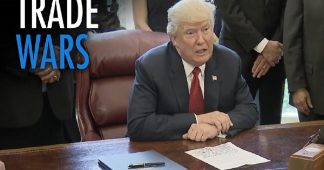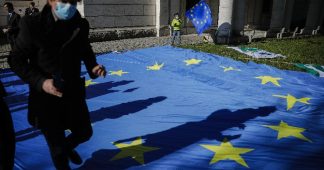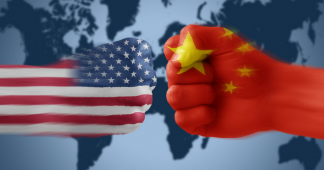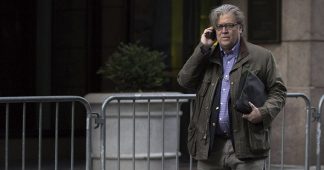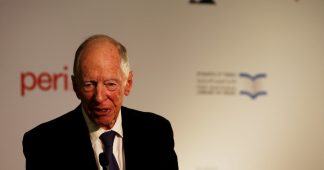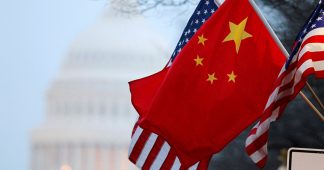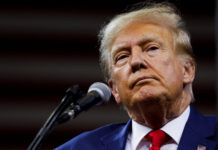By Steffen Stierle
junge welt, 19 February 2021
The EU’s new trade policy strategy presented in Brussels on Thursday is characterized by fears of further loss of power in global politics. With the paper, the Commission seconds the new U.S. President Joseph Biden, who recently identified China and Russia as the main enemies in his foreign policy speeches and held out the prospect of a further intensification of aggression against these states. Above all, the rise of China is causing the rulers in the West ever greater concern.
That is why the EU Commission’s new strategy, which refers to its trade policy in the period up to 2030, partly turns away from the free trade ideology it has propagated so far. Trade without rules and restrictions always runs in favor of the strongest. In contrast, the economies of the EU member states have fallen behind their Chinese competitors in many areas and are therefore relying on protectionist measures. So-called anti-dumping rules are intended to provide better protection against “unfair and aggressive trade practices”. The measures are tailored to China and allow the Commission to make it more difficult for exporters there to access the EU market through tariffs and other barriers. The approach is not entirely new. In the future, however, the Commission wants to act faster, more decisively and more independently.
In doing so, the EU is entering even deeper into the economic war against Beijing, which former U.S. President Donald Trump instigated and which the new administration wants to intensify even further. Brussels is driven by the ever accelerating loss of importance on the world market. While the EU’s share of global economic output was still 23 percent in 2000, the Commission fears it will fall to 13 percent by 2030. In addition, the Corona crisis has shown where stubborn liberalization policies and the resulting dependence on the world market can lead. Now supply chains are to be made more robust, i.e. political influence on trade flows is to be intensified.
In addition to protectionist measures to defend the global supremacy of the West, however, Brussels wants to continue to rely on classic neoliberal trade agreements in the future. At least where its own economic power is sufficient to assert its own interests in the negotiations. According to the report, the EU wants to “work more rigorously and with more clout for the implementation of its trade agreements. After all, it is in a position to “make its own decisions and shape the world around it through leadership and commitment in accordance with its strategic interests and values,” said the responsible EU Commissioner Valdis Dombrovskis when presenting the concept.
The cartel of states also wants to play a “leading role” in the “reform” of the World Trade
Organization (WTO), which many states are currently seeking. Dombrovskis: “We need open, rules-based trade to help boost growth and employment in the post-pandemic period.”
In the EU Parliament, the Commission’s move is likely to meet with majority approval. The
chairman of the trade committee, Bernd Lange, had already informed about the plans in an online session with journalists on Monday. Trade policy is of great importance, he said, but the “old liberalization logic” no longer holds water, as it is unsuitable in the fight against climate change and global inequality. Therefore, the SPD politician said, it makes sense for the EU to reflect on the direction of trade policy in the coming decade.
In Lange’s view, EU trade policy should be oriented along three axes: First, he said, the
transformation toward a climate-neutral economy must be secured; second, it must help make
globalization fairer. Finally, trade policy has an influence on international supply chains. Lange therefore advocates a “European supply chain law” similar to the one currently being prepared inGermany. Third, EU trade policy should serve the world power claims of the cartel of states – or contribute to making the EU stronger and more autonomous in its ability to act, as Lange put it.
The next few months must now show to what extent the EU and the U.S. will play together or
against each other in the West’s fight against decline. With regard to the punitive tariffs on EU steel products introduced by the Trump administration, the U.S. had recently signaled a willingness to negotiate in the context of the dispute in the WTO. On the other hand, Biden wants to tighten up the “Buy American Act” and other legal acts to give preferential treatment to US products, while the EU Commission wants to prevent groups from gaining market access that come from countries where EU companies are discriminated against. So there is certainly potential for conflict.
Translated with www.DeepL.com/Translator (free version)
